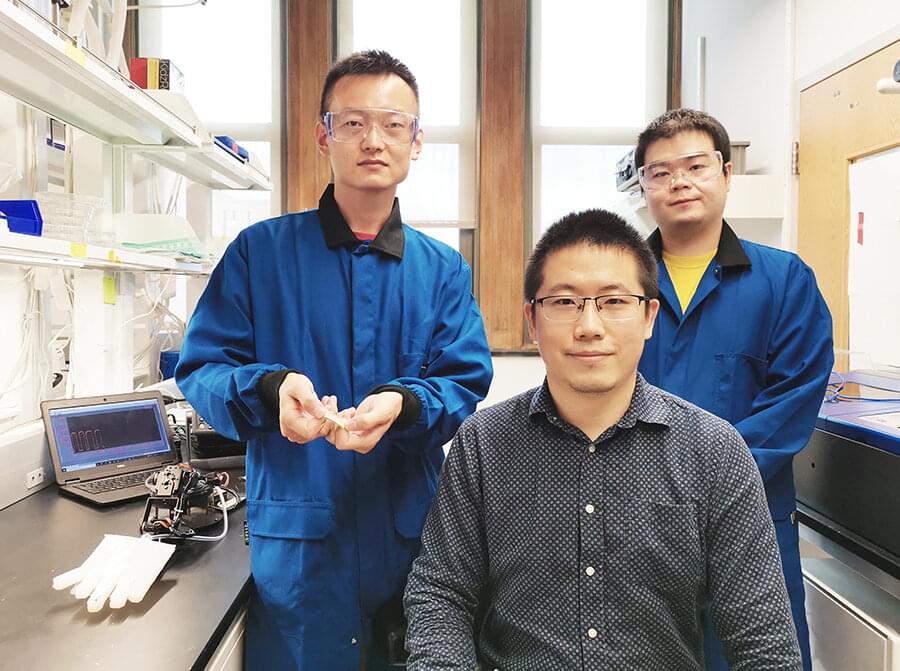In the future, soft robotic hands with advanced sensors could help diagnose and care for patients or act as more lifelike prostheses.
But one roadblock to encoding soft robotic hands with human-like sensing capabilities and dexterity has been the stretchability of pressure sensors. Although pressure sensors—needed for a robotic hand to grasp and pick up an object, or even take a pulse from a wrist—have been able to bend or stretch, their performance has been significantly affected by such movement.
Researchers at the Pritzker School of Molecular Engineering (PME) at the University of Chicago have found a way to address this issue and have designed a new pressure sensor that can be stretched up to 50 percent while maintaining almost the same sensing performance. It is also sensitive enough to sense the pressure of a small piece of paper, and it can respond to pressures almost instantaneously.
